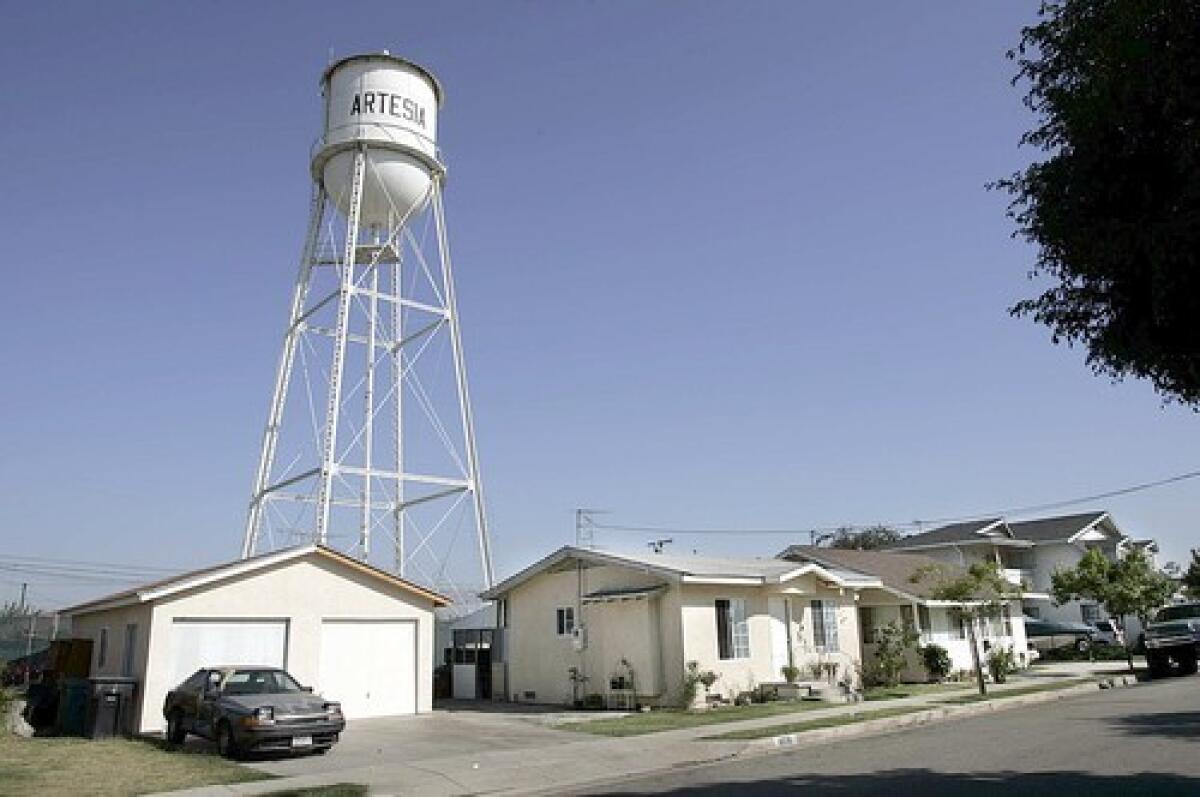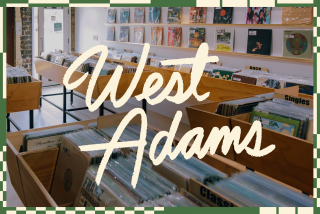From dairies to samosas and saris

.
BeginningsIn the 1920s and 1930s, Portuguese and Dutch immigrants developed Artesia into one of the most vital dairy districts in Southern California. After World War II, developers targeted this rural countryside for future home sites. As Artesiaâs land grew increasingly valuable, many dairymen sold their businesses and moved operations to Chino and Central California.
Immigration rules relaxed in 1965 with the passage of the Immigration and Nationality Services Act, which spurred more South Asians to move to suburban neighborhoods in Los Angeles and Orange counties.
Southern Californiaâs first Indian grocery store, Selecto Spices, opened in Hollywood, which was inconvenient to Orange Countyâs Indian population. The Indian community was able to persuade Selecto Spicesâ owner to move the business in 1970 to the more centrally located Artesia.
Although Pioneer Boulevard was one of Artesiaâs less desirable stretches in the early 1970s, its affordability attracted newly migrated Indians, who set up shop there. For more than 30 years, Little India has been developing along Pioneer between 183rd and 188th streets.
What itâs about
For many, Little India is home away from home. The filmi music made popular by Indian movies blasts from shops and cars and, perhaps, comforts homesick patrons as they stroll through Little India and think of Mumbai or New Delhi. Grocery stores are stocked with traditional Indian grains and spices, shops specialize in Indian jewelry, boutiques boast saris and the formalwear known as jodhpuris, beauty shops offer threading depilatories and Mehndi body art, and restaurants represent the South Asian countryâs diverse cuisines.Little India is also the official gathering place for festivities. Artesia Park is home to the annual Indian Independence Day Celebration. The all-day event held every Aug. 15 includes games, food and entertainment by Bollywood (Indian cinema) celebrities. Other events at the park include mid-fallâs Diwali, or Festival of Lights, and Navaratri, the Festival of Nine Nights.
Insidersâ view
Indian residents enjoy the close-knit community and the proximity to shops and markets. âWhen youâre here, you feel like youâre back in India. You donât have to tell Indians to come here. They already know that this is the place to be,â said Venkatesh Koka, a 12-year Artesia resident who owns shopping centers in Little India.
âIf you want Indian stores and you want to be around Indian people, then you need to live near Little India,â said Sam Shah of Re/Max of Cerritos.
Housing stock
According to Shah, Little Indiaâs neighborhoods are a âhodgepodge,â with million-dollar homes next to rental apartments.
On the market now is a 1,229-square-foot, single-story home on Clarkdale Avenue listed at $539,500. Built in 1952, it has four bedrooms, two bathrooms and, unlike many older homes in Artesia, an attached garage.
A 2,310-square-foot, two-story home on Norwalk Boulevard is priced at $749,000. Built in 1981, this semi-custom home has three bedrooms, 2 1/2 bathrooms and two balconies.
A 3,152-square-foot, two-story custom home built in 2001 on Grayland Avenue is priced at $1,199,000. It has four bedrooms, three bathrooms and a walk-in pantry.
Report card
Students are served by the ABC (Artesia, Bellflower, Cerritos) Unified School District. Children from kindergarten through sixth grade attend Kennedy Elementary, which scored 793 out of a possible 1,000 on the 2006 Academic Performance Index Growth Report. Ross Middle School and Cerritos High scored 740 and 813, respectively.Sources: https://www.cde.ca.gov ; Sam Shah of Re/Max of Cerritos; Venkatesh Koka of Realty Specialties; https://www.cityofartesia.us ; https://www.artesiaindia.us ; https://www.realtor.com .
More to Read
Inside the business of entertainment
The Wide Shot brings you news, analysis and insights on everything from streaming wars to production â and what it all means for the future.
You may occasionally receive promotional content from the Los Angeles Times.










